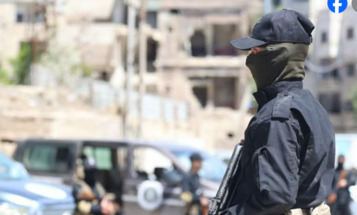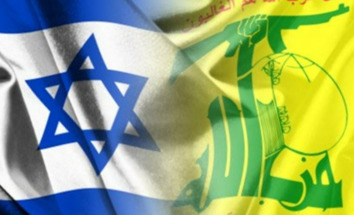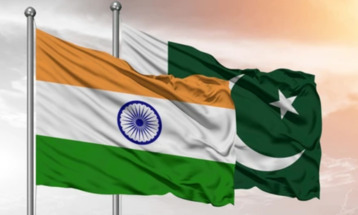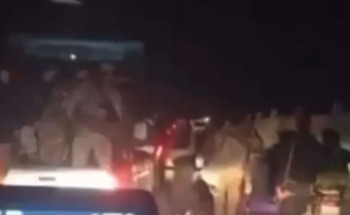-
Leaders of Turkey, Russia, Iran set to tackle Syria turmoil
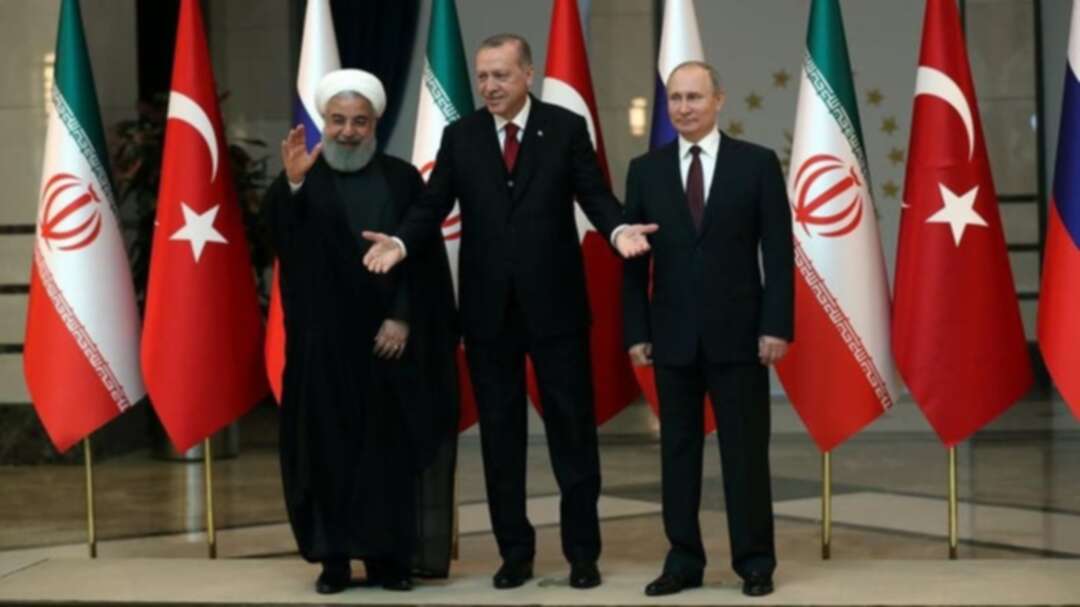
The leaders of Turkey, Russia and Iran meet on Monday to try to secure a lasting truce in northwest Syria following attacks by the government that risk deepening regional turmoil and pushing a new wave of migrants toward Turkey.
The summit in Ankara, bringing together countries whose Syrian allies are combatants in a ruinous eight-year-old war, will focus on the Idlib region, the last remaining territory held by militants seeking to overthrow President Bashar al-Assad.
Russian President Vladimir Putin and Iran’s Hassan Rouhani have backed al-Assad against the militants. Turkish President Recep Tayyip Erdogan, along with the United States, European and Arab allies, has supported different militant factions in the conflict.
Al-Assad’s forces, aided by Russian air power, have regained control of most lands lost in the war. In recent months, al-Assad’s forces have attacked Idlib, where Syrian and foreign extremist fighters hold sway alongside other more moderate factions.
Under a deal with Moscow and Tehran two years ago, Turkey set up 12 military observation posts in northwest Syria aimed at reducing fighting between al-Assad’s forces and rebels.
The Turkish military posts have recently been caught in the crossfire due to the Syrian offensive in the region.
In an interview with Reuters on Friday, Erdogan warned that any Syrian government attack on the posts would draw retaliation from Turkish forces, possibly risking a direct confrontation between Ankara and Damascus.
“The moment that the regime messes with our observation posts, if there is any attack, then things will take a very different direction,” Erdogan told Reuters. “We will not hold back like we are now. We will take any necessary steps.”
Erdogan and Putin agreed at talks in Moscow in August to “normalize” the situation in the region, after Syrian troops encircled militants and a Turkish post in a move Ankara said threatened its national security.
While Putin and Erdogan have forged close ties over a range of issues like energy and defense cooperation, recent attacks by Syrian troops have also strained ties between Ankara and Moscow.
Possible migrant wave
The fighting in northwestern Syria has also raised the risk of a new migrant wave toward Turkey, which currently hosts some 3.6 million Syrian refugees.
The United Nations has said that more than 500,000 people have been uprooted since late April, most of them escaping deeper into the rebel bastion and towards the border.
While Erdogan has said that Turkey could not handle such an influx of refugees, he has also previously threatened to “open the gates” for migrants to Europe unless Ankara receives more international support.
On Friday, Erdogan reiterated his warning and said Monday’s summit would aim to stop the migration from Idlib and establish a ceasefire to prevent any further civilian casualties.
“The expectation here is not a momentary ceasefire. First, it is to put a stop to the migration here,” he told Reuters. “Second, to ensure a ceasefire here. Third, to seriously get terrorist organizations under control,” he added.
“Turkey, which is hosting 3.6 million refugees in its home at the moment, cannot take the millions of people that will arrive from there,” Erdogan said. “We cannot carry that weight.”
Erdogan’s ruling AK Party (AKP) suffered some stunning local election losses this year in part due to impatience among Turks over the Syrian refugees. Erdogan has said one million refugees could return to a “safe zone” in northeast Syria, which Turkey is trying to establish with the United States.
Syrian troops shelled the south of Idlib on Sunday, according to rescuers and residents in the rebel stronghold where a ceasefire had halted a fierce army offensive two weeks ago.
The summit also comes after Yemen’s Iran-aligned Houthi group launched drone attacks on two of Saudi Arabia’s Aramco oil installations on Saturday. Washington later blamed Iran for the attacks, which Tehran dismissed as “pointless” on Sunday.
On Monday, Erdogan, Putin and Rouhani are expected to hold bilateral talks with each other before holding trilateral talks on the developments in Idlib. The three leaders will then hold a joint news conference.
You May Also Like
Popular Posts
Caricature
BENEFIT Sponsors BuildHer...
- April 23, 2025
BENEFIT, the Kingdom’s innovator and leading company in Fintech and electronic financial transactions service, has sponsored the BuildHer CityHack 2025 Hackathon, a two-day event spearheaded by the College of Engineering and Technology at the Royal University for Women (RUW).
Aimed at secondary school students, the event brought together a distinguished group of academic professionals and technology experts to mentor and inspire young participants.
More than 100 high school students from across the Kingdom of Bahrain took part in the hackathon, which featured an intensive programme of training workshops and hands-on sessions. These activities were tailored to enhance participants’ critical thinking, collaborative problem-solving, and team-building capabilities, while also encouraging the development of practical and sustainable solutions to contemporary challenges using modern technological tools.
BENEFIT’s Chief Executive Mr. Abdulwahed AlJanahi, commented: “Our support for this educational hackathon reflects our long-term strategic vision to nurture the talents of emerging national youth and empower the next generation of accomplished female leaders in technology. By fostering creativity and innovation, we aim to contribute meaningfully to Bahrain’s comprehensive development goals and align with the aspirations outlined in the Kingdom’s Vision 2030—an ambition in which BENEFIT plays a central role.”
Professor Riyadh Yousif Hamzah, President of the Royal University for Women, commented: “This initiative reflects our commitment to advancing women in STEM fields. We're cultivating a generation of creative, solution-driven female leaders who will drive national development. Our partnership with BENEFIT exemplifies the powerful synergy between academia and private sector in supporting educational innovation.”
Hanan Abdulla Hasan, Senior Manager, PR & Communication at BENEFIT, said: “We are honoured to collaborate with RUW in supporting this remarkable technology-focused event. It highlights our commitment to social responsibility, and our ongoing efforts to enhance the digital and innovation capabilities of young Bahraini women and foster their ability to harness technological tools in the service of a smarter, more sustainable future.”
For his part, Dr. Humam ElAgha, Acting Dean of the College of Engineering and Technology at the University, said: “BuildHer CityHack 2025 embodies our hands-on approach to education. By tackling real-world problems through creative thinking and sustainable solutions, we're preparing women to thrive in the knowledge economy – a cornerstone of the University's vision.”
opinion
Report
ads
Newsletter
Subscribe to our mailing list to get the new updates!


